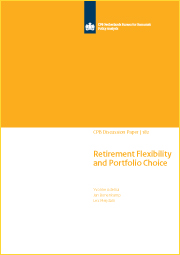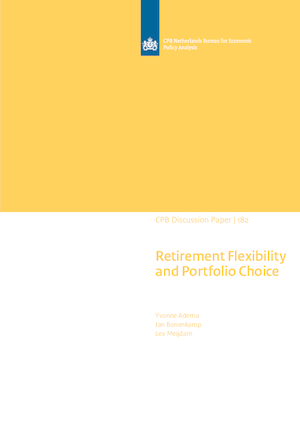Retirement Flexibility and Portfolio Choice

Retirement flexibility is often seen as a hedge against capital-market risks which justifies more risky asset portfolios. We show, however, that this positive relationship between risk taking and retirement flexibility is weakened and under some conditions even turned around, if not only capital-market risks but also productivity risks are considered. Productivity risk in combination with a high elasticity of substitution between consumption and leisure creates a positive correlation between asset returns and labour income, reducing the willingness of consumers to bear risk. Moreover, it turns out that general-equilibrium effects can either increase or decrease the equity exposure, depending on the degree of substitutability between consumption and leisure.
Key words: retirement (in) flexibility, portfolio allocation, risk, intratemporal substitution elasticity
JEL codes: E21, G11, J26
